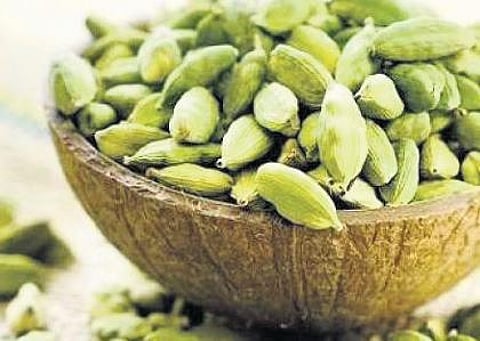

KOCHI: Jais Joseph, a second-generation planter in his mid-30s from Idukki, takes a group of workers from his home in Vattappara to Udumbanchola some 8km away almost every day to tend to his cardamom plantation spread over 13 acres.
However, the efforts have failed to yield the desired results for the past three years due to the sharp fall in the price of cardamom, which is considered the ‘queen of spices.’ The price of Idukki’s small cardamom plummeted from over Rs 5,000/kg in June 2019 to around Rs 900/kg now, a decline of 82%.
“Transportation alone costs us Rs 400 per day. Add to it the labourers’ wages and maintenance cost of the farm and the entire expense comes to around Rs 1,000-Rs 1,200 for every kg of cardamom produced. This is unsustainable,” he says.
The rise in cultivation and production of the spice in the past three years is one of the reasons for the spiralling price. As per the Spices Board, production shot up to 22,000 tonnes in 2020-21 from 17,000 tonnes in 2018-19. During the period, the area of cultivation went up from 82,761 hectares to 83,788 hectares. “When cardamom price went beyond Rs 5,000/kg, a large number of small-scale farmers started cultivating it in their backyard, on 3-4 cents of land. We cannot match them in production cost,” Jais says.
Adding to their woes were reports that Saudi Arabia, Japan, Qatar and a few other nations that together form a big export market for Indian cardamom, had either banned or imposed strict curbs on the spice due to the presence of pesticide, something the union commerce ministry had denied. “Saudi Arabia and Japan have not banned import of cardamom from India,” it said in a statement on July 24, 2019. However, it said the Saudi Arabia Food & Drug Authority (SFDA) had detained four import consignments of cardamom (small) from India due to the detection of pesticide residue above the maximum residue level (MRL) specified by SFDA in April-May 2018.
Paul Raj Joseph, who owns 50 acres of cardamom farms in Munnar’s Lakshmi Hill, says ‘safe to eat, safe to consume’ motto is very important at present, and the government and Spices Board should create awareness among farmers to ensure “our cardamom gets back its prime position in global market.”Joy P Joseph, a botanist and former associate professor of SH College, Thevara, who has been studying the price trend in cardamom, says the domestic market is big enough to keep the rate high.
“After the price drop, several farmers have been holding on to their stock in hopes it will rise to the 2019 level. However, the longer they hold on to the old stock, the lower its demand will be as newer stock arrives. So, there’s a possibility of cardamom fetching Rs 50/kg lower if the stock is one year old,” says Joy, who owns about 15 acres of cardamom farm in Idukki’s Bison Valley panchayat.
He says restricting pesticide content and eliminating chemical colouring are important to create more global demand and ensure premium pricing for cardamom. “After Saudi Arabia detained cardamom imports, traders stopped sending it fearing more detention due to pesticide residue,” Joy says. The Centre, through the Spices Board, is conducting campaigns in the nation’s cardamom growing areas to popularise Integrated Pest Management (IPM) practices among growers and promote use of bio-control agents to manage pests and diseases in the spice.